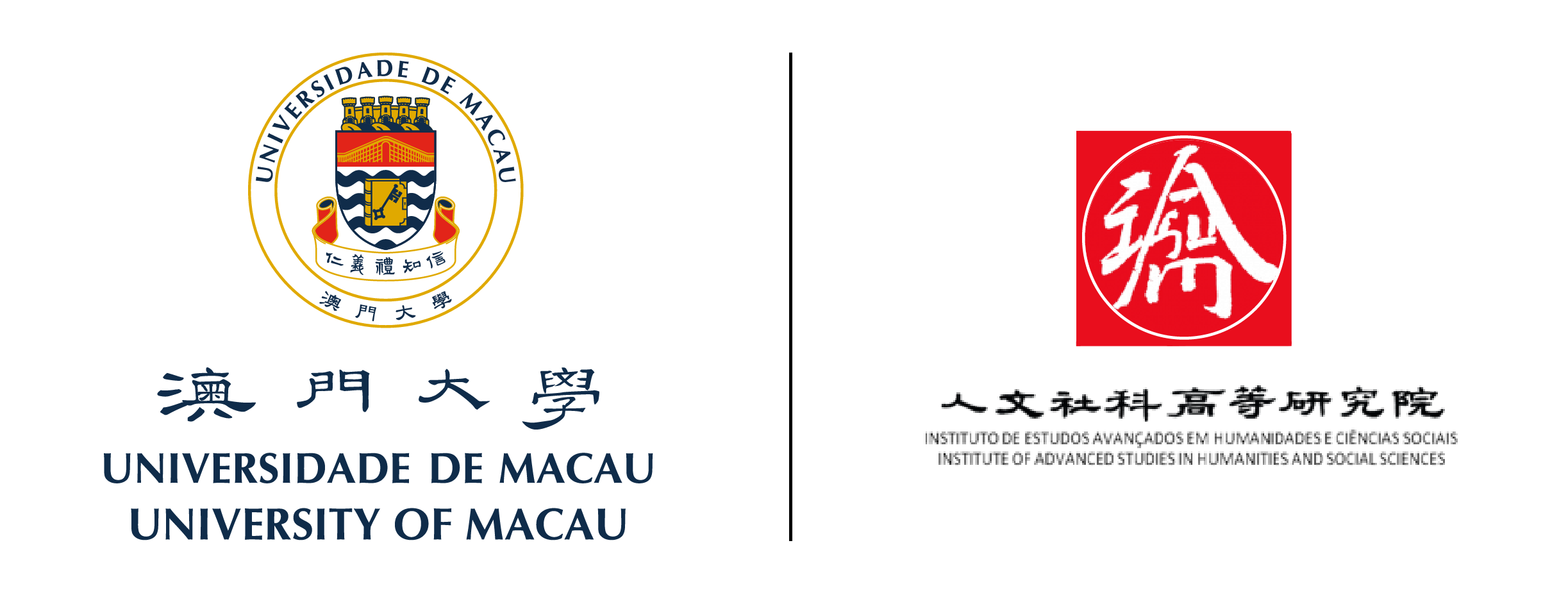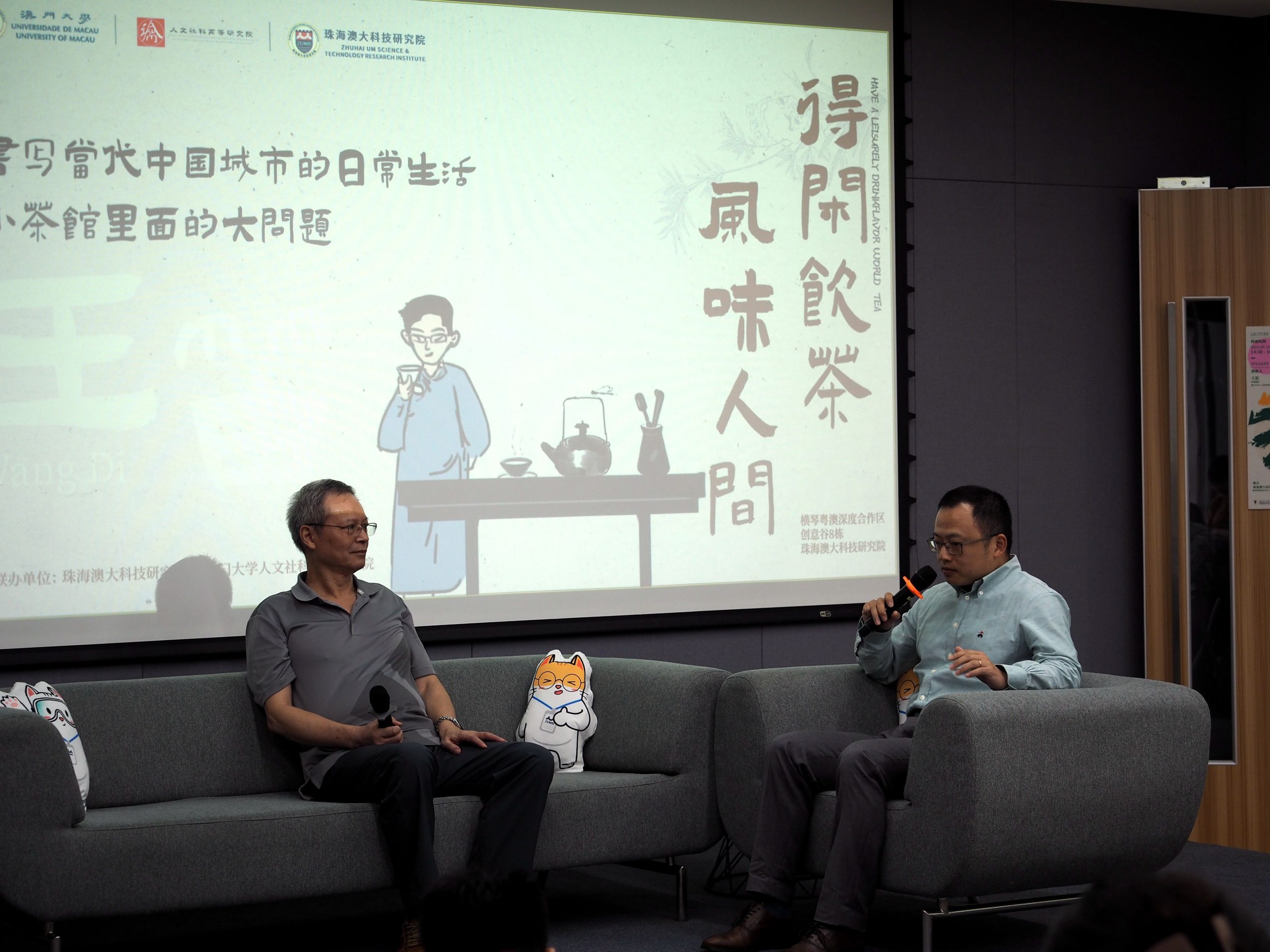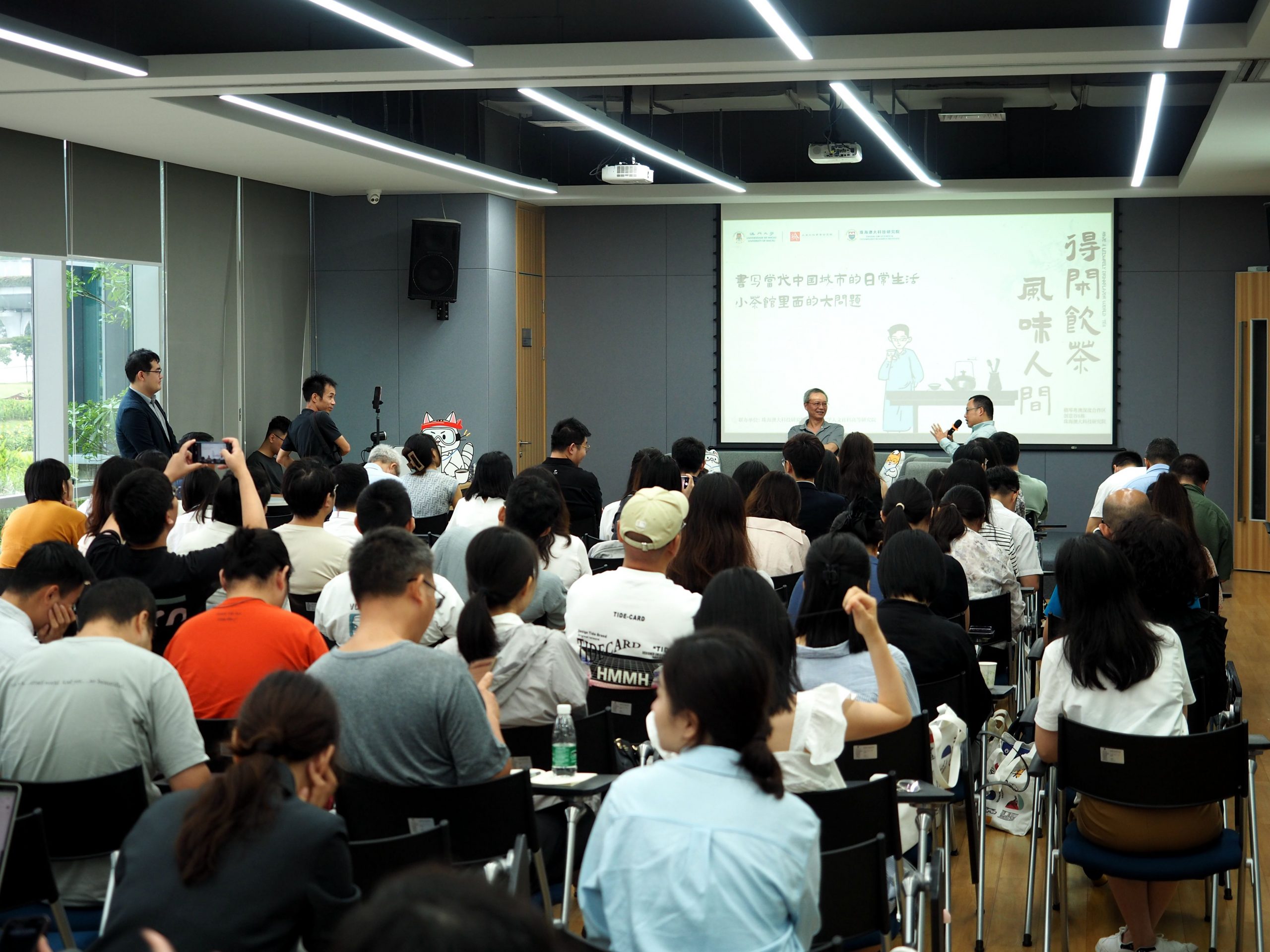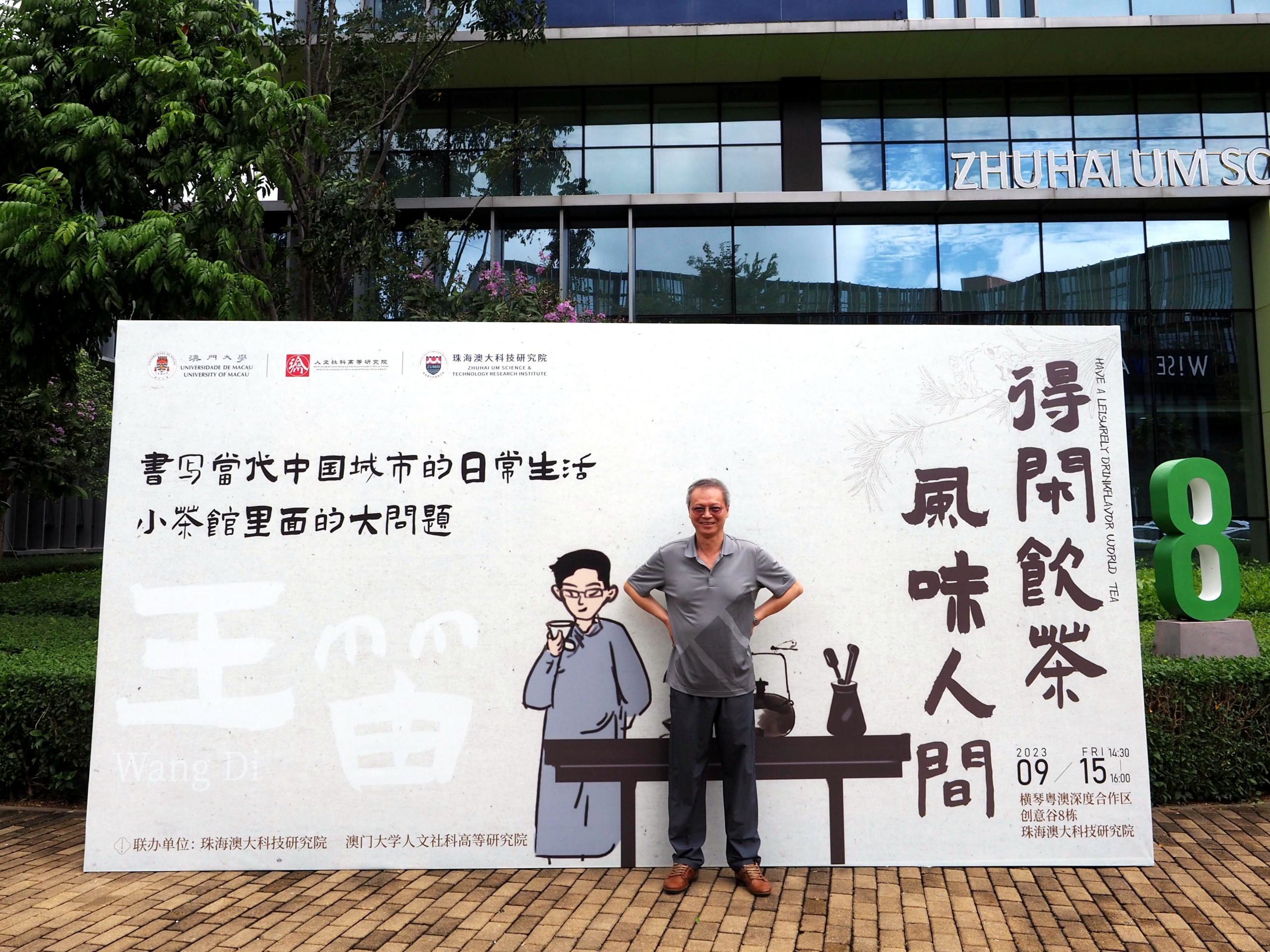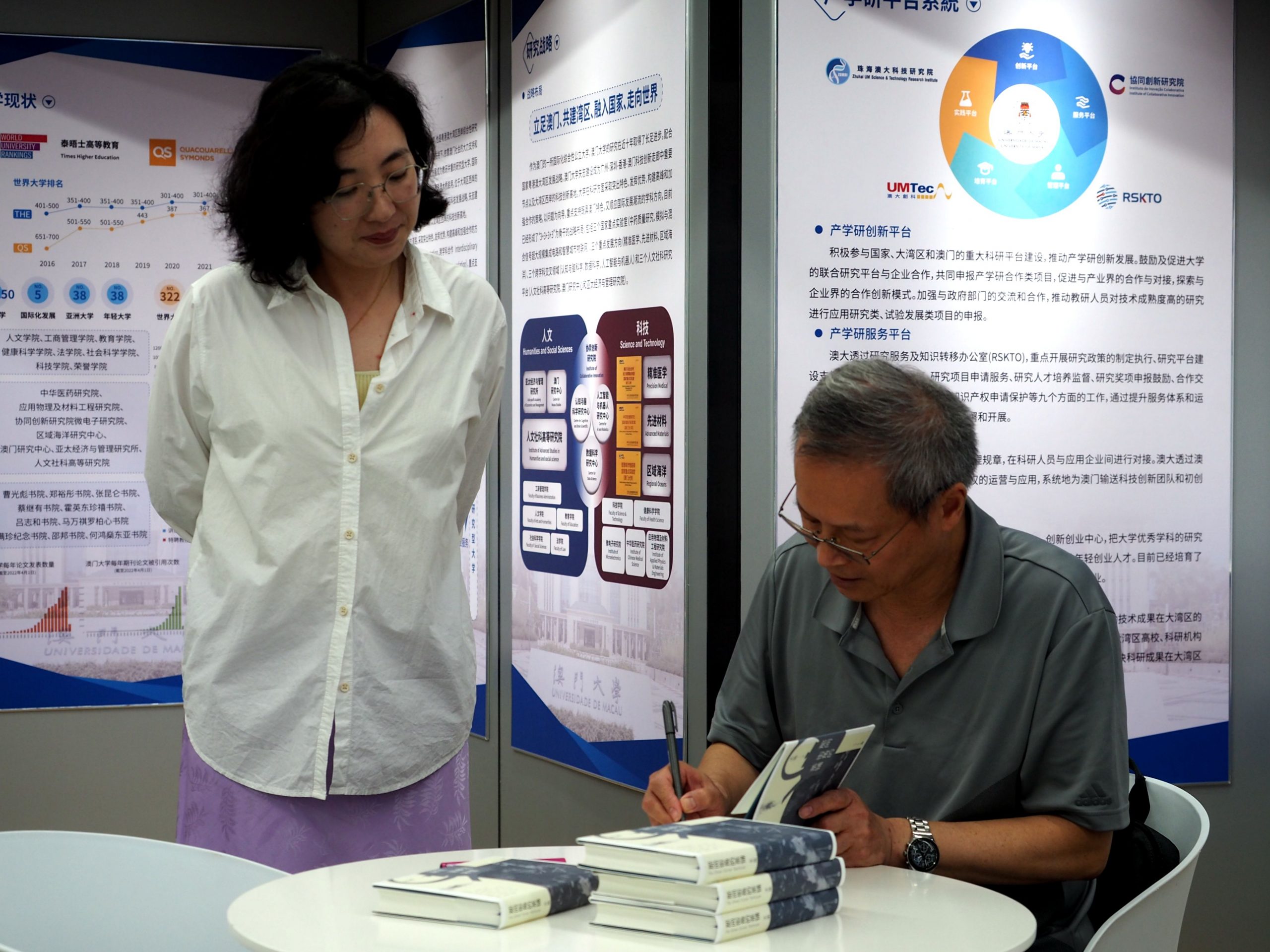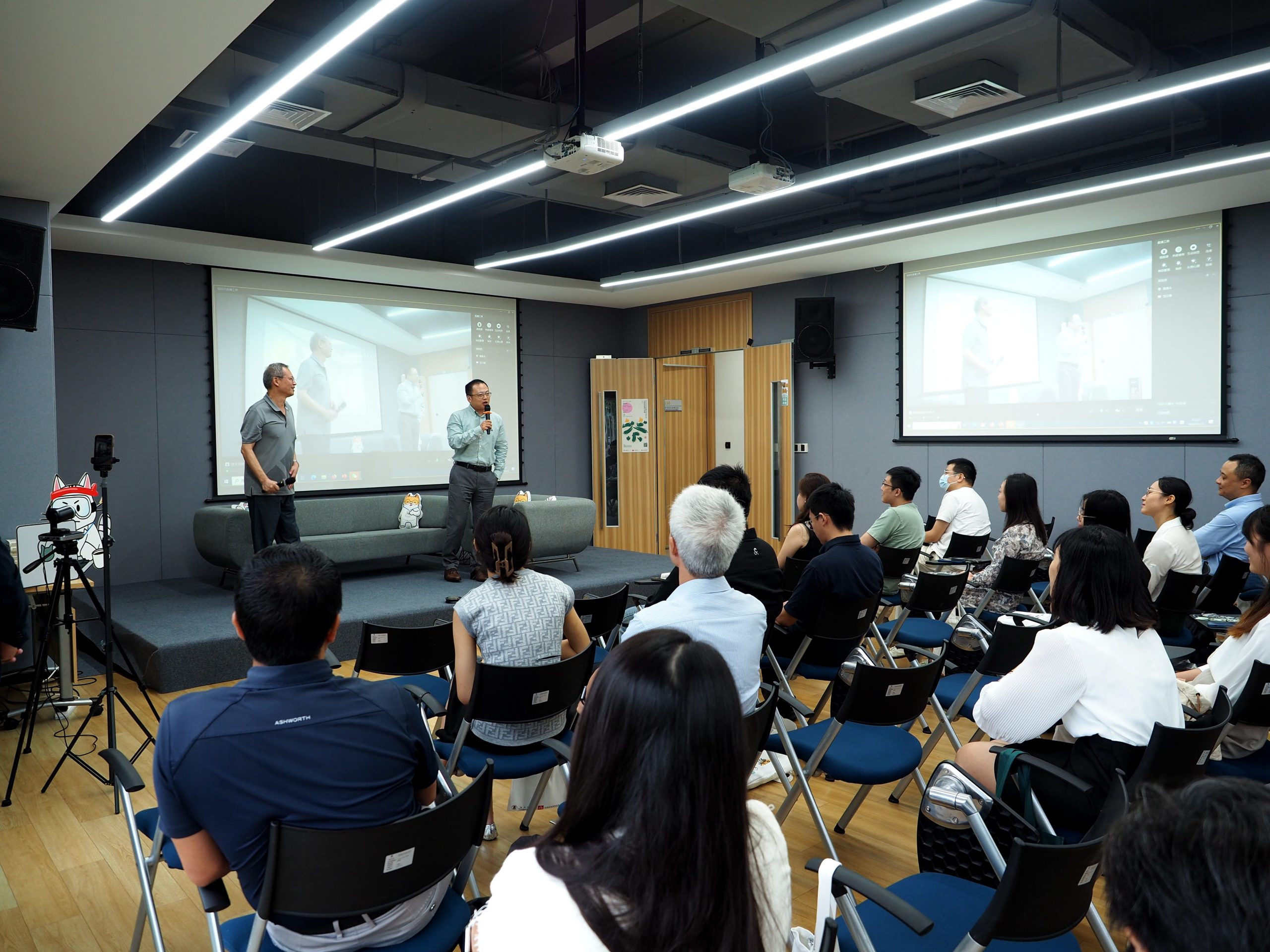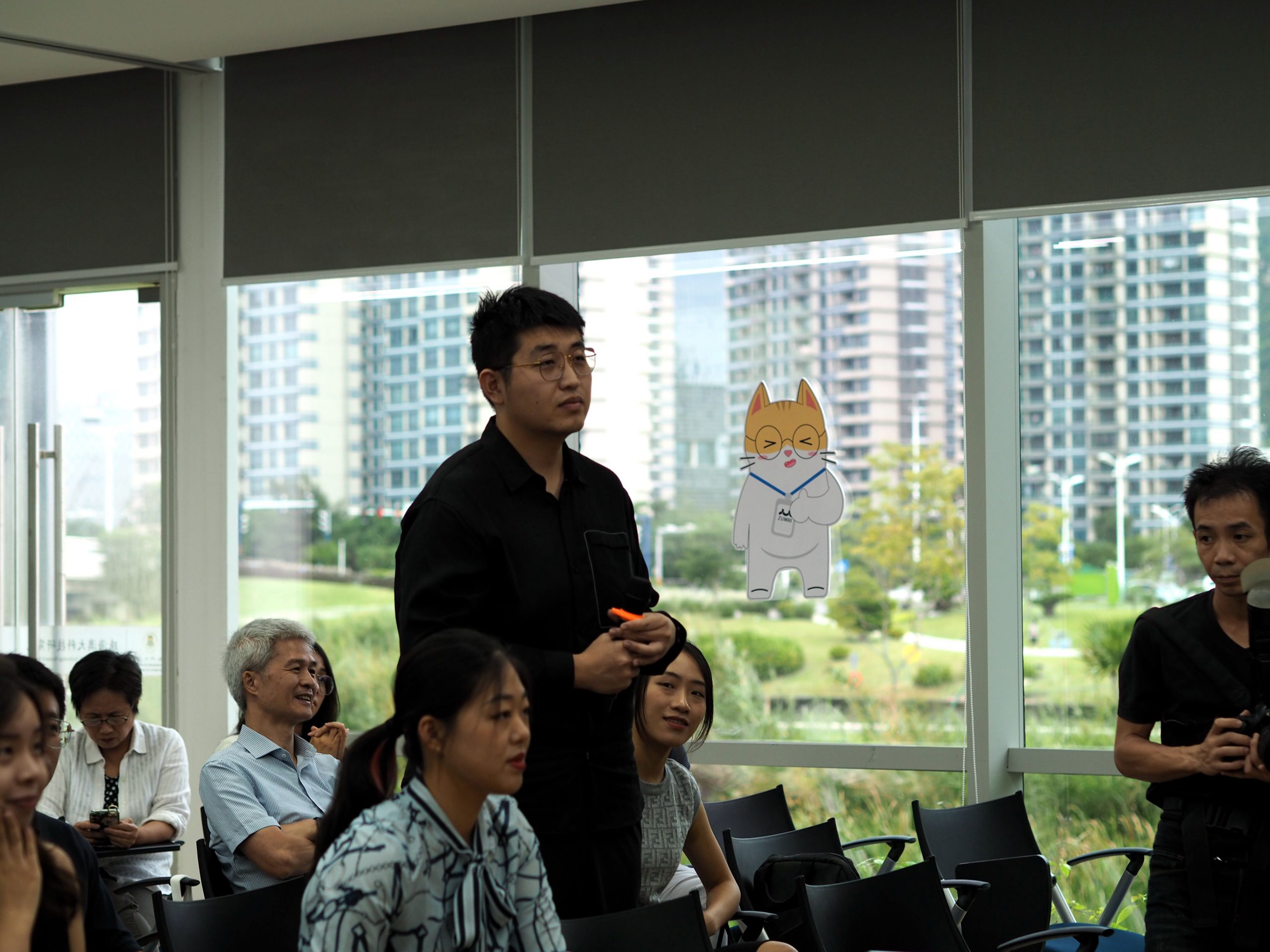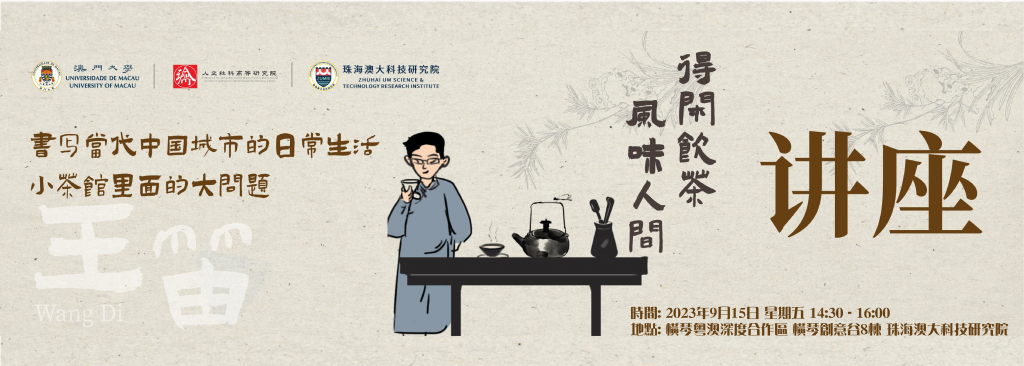
The ZUMRI & IAS Humanities and Social Sciences Lecture, entitled “Writing about the daily life of modern Chinese cities – Big issues in small teahouses,” was successfully held on 15 September, 2023, at ZUMRI.Professor Di Wang narrated the urban history of teahouses and people’s lives, along with social changes. This collaboration between ZUMRI and IAS aims to facilitate the synergy effects of academic resources and promote collaboration and exploration in the humanities, science, and technology fields.
During the Western Expansion in China by the early 2000s, the society of Chengdu was deeply worried that cultural practices such as playing mahjong and sipping tea might convey a negative image of the city as slow-paced and lacking ambition. After years of development, Chengdu successfully transformed into the first-tier city in China. However, its rich traditions of mahjong and teahouses remain the same.
The teahouses that serve as a public sphere have faced many challenges during the social changes. The development of teahouses reached its peak during the Republican period. The teahouses experienced a gradual decline in the 1960s but have steadily recovered after the period of Reform and Opening-up. In the early stage of Socialism, the resources were in the hands of the state, unauthorized cultures were diminished, and traditional performances in the tea houses were changed to suit the policies. Teahouses are the models that reflect how political cultures affect society.
Professor Wang believed that the success of Reform and Opening-up can be attributed to the government’s decreased level of control and intervention in public affairs. This allowed the city to operate with its own vitality. The current commercialization has limited space for small teahouses. Professor Wang claimed that only time can tell us whether teahouses will survive and thrive in the decline of local culture.
During the lecture, Professor Wang shared his publishing experience. He claimed that research and writing should rely on rigorous methods and strict language. Moreover, academics may attempt to present articles by historians with straightaway and simplified forms to engage young readers who may not find traditional historical texts appealing.
Professor Wang also shared stories from his field studies while preparing for his publication. Those daily stories have given teahouses a valuable and unique role in people’s lives. At the end of the lecture, Professor Wang said that historians might lose their research focus due to the repetitive and predictable nature of daily life. However, only the prosperous and stable lives of the people can be combined into a great narration.

